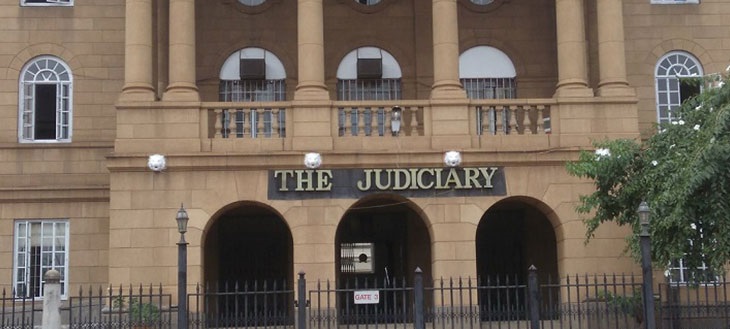Kenya stands at a crossroads, where the vibrancy of its democracy is being tested by the actions of its government and the resilience of its people.
Protests against the Finance Bill 2024, largely mobilised by young Kenyans through digital platforms, have brought into sharp focus the importance of digital rights and the urgent need to uphold constitutionalism.
Today, events unfolding in the streets and online are not isolated; they are deeply entwined with the nation’s constitutional fabric and the broader struggle for human rights.
Digital Rights: The New Frontier of Civic Engagement
Digital rights, encompassing the freedoms of expression, assembly, and access to information in the digital realm, have become central to the exercise of democracy in Kenya. The hashtag #OccupyParliament exemplifies how Kenyans are leveraging social media to organise, inform, and mobilise in unprecedented ways.
These digital tools have empowered citizens, especially the youth, to amplify their voices and demand accountability from those in power.
Yet, the digital sphere is not immune to state overreach.
Reports of internet throttling, surveillance, and threats to online activists during protests threaten these newfound freedoms. Such actions undermine the constitutional guarantees that Kenyans fought so hard to enshrine in 2010.
As the Constitution’s preamble eloquently states, Kenyans are “proud of our ethnic, cultural, and religious diversity and determined to live in peace and unity as one indivisible sovereign nation…committed to nurturing and protecting the well-being of the individual, the family, communities, and the Nation.”
Digital rights are now integral to this well-being.
Constitutionalism: The Bedrock of Democracy
At the heart of Kenya’s political order lies the principle of constitutionalism—the idea that all authority is derived from, and limited by, the Constitution.
Article 37 guarantees every person “the right, peacefully and unarmed, to assemble, to demonstrate, to picket, and to present petitions to public authorities.”
This right is not only a domestic guarantee but also affirmed by international instruments such as the African Charter on Human and Peoples’ Rights and the International Covenant on Civil and Political Rights, to which Kenya is a signatory.
The Constitution is unequivocal:
“All sovereign power belongs to the people of Kenya and shall be exercised only in accordance with the Constitution.”
Parliament, the executive, and the judiciary are mere delegates of this power, bound to act within the limits set by the supreme law.
When state organs respond to peaceful protests with teargas, batons, and water cannons—resulting in deaths and injuries—they betray the very spirit of constitutionalism and the social contract between the state and its citizens.
Why Uphold Constitutionalism?
The recent protests serve as a powerful reminder of why constitutionalism must be upheld:
- Protection of Human Rights: The Constitution exists to “preserve the dignity of individuals and communities; to promote social justice; and to promote the realisation of the potential of all human beings” (Article 19). When the state suppresses peaceful assembly—whether physically or digitally—it erodes these foundational values.
- Empowerment and Inclusion: Protests, both online and offline, “empower Kenyans and help them realise that they aren’t alone in their efforts to petition the government to provide relief for their grievances.” They are a vital channel for minorities and marginalised groups to participate in governance and policymaking.
- Accountability and Policy Reform: Public demonstrations “can force the government to include issues that are of interest to the protesting public in national policy debate” and “force politicians to keep their campaign promises.” They act as a check on power, ensuring that leaders remain responsive to the people.
- Resilience of the Constitution: As Justice (Prof.) Joe Ngugi notes, “Many Kenyans now say that our Constitution is capable of fighting for itself. Katiba inajilinda as Kenyans on X famously say. The Constitution has been equipped with its self-defence mechanisms.” This resilience is only meaningful if citizens and institutions are vigilant in defending it.

The Role of the Judiciary and State Institutions
Kenya’s judiciary was designed to be “robustly independent…competent to translate social struggles into constitutional and legal meanings.”
Judges are called upon to “protect the dignity of all, promote social justice for all, and promote the potential of all human beings.”
However, jurisprudence has been inconsistent. While some court decisions have supported the right to protest, others have imposed restrictions—such as the creation of “demonstration zones”,—that risk undermining the democratic function of protests.
As the courts navigate these tensions, they must remain steadfast in their duty to uphold the Constitution’s transformative vision.
As Justice Ngugi reminds us, “The work of liberty is never done; and…the art of perfecting the Constitution…is never completed. It is always an ongoing work; beckoning each generation to translate their struggles for social justice within its bounds.”
Digital Rights and the Right to Protest: An Inseparable Pair
In the digital age, the right to protest and digital rights are inseparable. Attempts to stifle online mobilisation, censor dissenting voices, or surveil activists are not just violations of digital rights—they are assaults on the Constitution itself.
The state’s obligation, under both domestic and international law, is to “enhance the ability of citizens to realize the right to peaceful assembly” and to “avoid the use of force or, where that is not practicable, restrict such force to the minimum extent necessary.”
The Call to Defend Kenya’s Constitutional Promise
Kenya’s Constitution is more than a legal document; it is a living testament to the aspirations of its people for “human rights, equality, freedom, democracy, social justice, and the rule of law.”
In the wake of the current protests, the state faces a critical test: Will it honour this promise, or will it revert to the repressive tactics of the past?
As citizens continue to assert their rights—both on the streets and online—the imperative to uphold constitutionalism has never been clearer. The digital age offers new tools for civic engagement, but it also demands renewed vigilance in defending the freedoms that make democracy possible.
The words of the Constitution and the sacrifices of those who struggled for it call on all Kenyans—citizens, leaders, and judges alike—to stand firm in defense of liberty, justice, and the rule of law.
“The aspirations of the Kenyan people as embodied in the Preamble to the Constitution stand at risk of being subverted, mutilated, and rendered impotent by our Parliamentarians and other arms of government,, the Executive and the Judiciary.”
Now, more than ever, Kenya must choose the path of constitutionalism—protecting digital rights, safeguarding the right to protest, and ensuring that the sovereign will of the people remains supreme.




